
According to delegate Nguyen Thi Viet Nga (Hai Phong), the promulgation of this law is extremely necessary, because current population policies have revealed many limitations, no longer suitable to the current population situation in Vietnam. The population size is increasing slowly, the birth rate tends to decrease in many localities, while the gender imbalance at birth remains at an alarming level and the population aging is happening faster than expected.
In addition, the country's socio -economic conditions have changed dramatically; people's awareness, lifestyle and views on marriage and family, especially the youth, have also changed a lot. The mentality of getting married late, having few children, or even not wanting to have children is becoming more and more common; while some gender stereotypes still exist in some groups. These changes create new challenges for population work, requiring changes and the issuance of new policies to improve population quality and adapt to population aging.
Regarding the regulation on increasing maternity leave for the second child, according to the delegate, this is a regulation that will receive the approval of many mothers. However, the Russian delegate said that it needs to be carefully considered because when extending maternity leave for female workers, businesses will tend to hesitate to recruit or arrange female workers for important positions due to concerns about work interruption and additional costs.
“This regulation could unintentionally become a barrier for female workers and increase the risk of gender discrimination in recruiting and employing female workers,” the delegate noted.
The delegate analyzed that for the current group of women who tend to value their careers, especially the group of young, high-quality workers, the policy of increasing maternity leave can create a fear of having a second child. Due to the worry that longer absences will affect promotion opportunities, work performance evaluations or positions in agencies and businesses.
One of the issues that needs attention is the development of a system of nurseries and childcare facilities for children from 6 months old, creating conditions for women to return to work earlier if they need to. In addition, delegates said that it is necessary to change the mindset in policy making, and it should be stipulated that both husband and wife can take long leave to take care of their newborn children, instead of only stipulating long leave for women as is currently the case.
In reality, with the support of devices and tools for pumping, storing and preserving milk, mothers do not necessarily have to be with their children constantly but can still ensure that their children are exclusively breastfed for the first 6 months of life as recommended by the health sector. Therefore, the maternity leave policy needs to be more flexible than before.
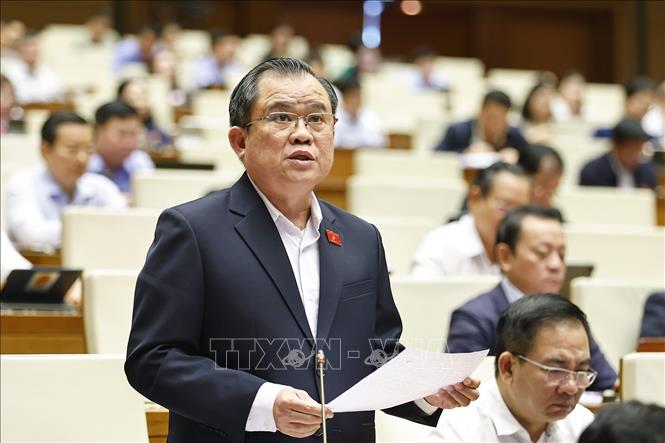
Delegate Nguyen Tam Hung (Ho Chi Minh City) agreed with the measures to increase maternity leave for the second child, extend leave for husbands, provide financial support, and prioritize social housing. However, the delegate said that it is necessary to set criteria to identify “low birth rate localities” according to the index threshold and update cycle to avoid inconsistencies between localities.
The draft has clearly defined the scope of regulation including communication, maintaining replacement fertility, reducing gender imbalance at birth, adapting to aging, improving population quality and conditions to ensure implementation. This is the right direction and needs to be institutionalized synchronously to improve the quality of human resources, ensure social security and sustainable development.
However, to perfect the draft Law, delegate Hung suggested that the drafting committee consider adding a mandatory "population impact assessment" mechanism when developing strategies, plans, programs, and important projects to ensure that the integration of population factors is substantial, with a specific appraisal agency, criteria, and assessment products.
Regarding the ban on disclosing the gender of the fetus for non-medical purposes and the regulation on suspending practice under the Law on Medical Examination and Treatment, delegate Nguyen Tam Hung proposed clarifying the handling process, authority, and time limit; strengthening coordination between health and information and communication to prevent advertising and brokerage of gender selection in the digital environment; and assigning the Ministry of Health to issue a list of genetic diseases related to gender and professional procedures to avoid abuse.
Regarding digital transformation and population data protection, delegates suggested considering a separate article on information systems, population databases and data protection: purpose of use; minimum collection; connection, sharing according to decentralization; safety, security; citizens' rights to access and edit; accountability when data is leaked. This is the foundation for effective implementation of policies in the law.
Opinions also said that maintaining the replacement fertility rate is a task that cannot be undertaken by the State alone, but requires the participation of economic, social organizations and businesses; it is recommended to expand regulations on entities responsible for supporting workers to maintain fertility rates, through flexible policies on maternity leave, financial support or a friendly working environment...
Source: https://baotintuc.vn/thoi-su/chinh-sach-nghi-thai-san-can-huong-den-su-linh-hoat-hon-so-voi-truoc-day-20251110201236821.htm










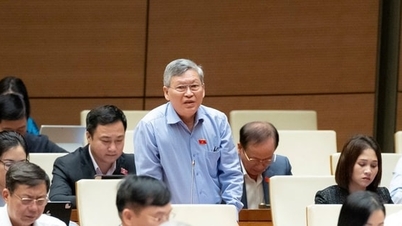

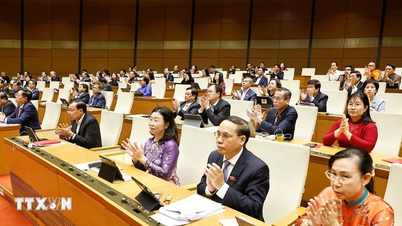


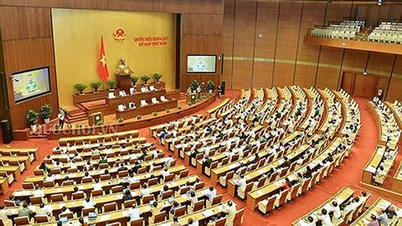
















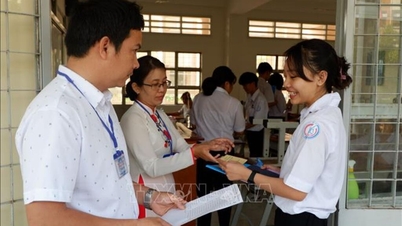

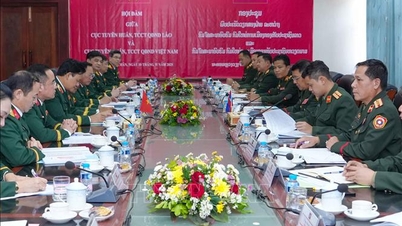


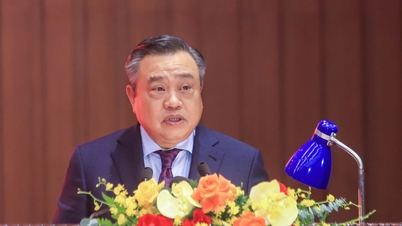












































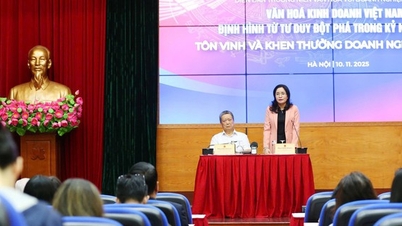








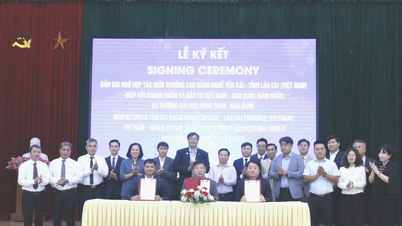








![Dong Nai OCOP transition: [Article 3] Linking tourism with OCOP product consumption](https://vphoto.vietnam.vn/thumb/402x226/vietnam/resource/IMAGE/2025/11/10/1762739199309_1324-2740-7_n-162543_981.jpeg)











Comment (0)